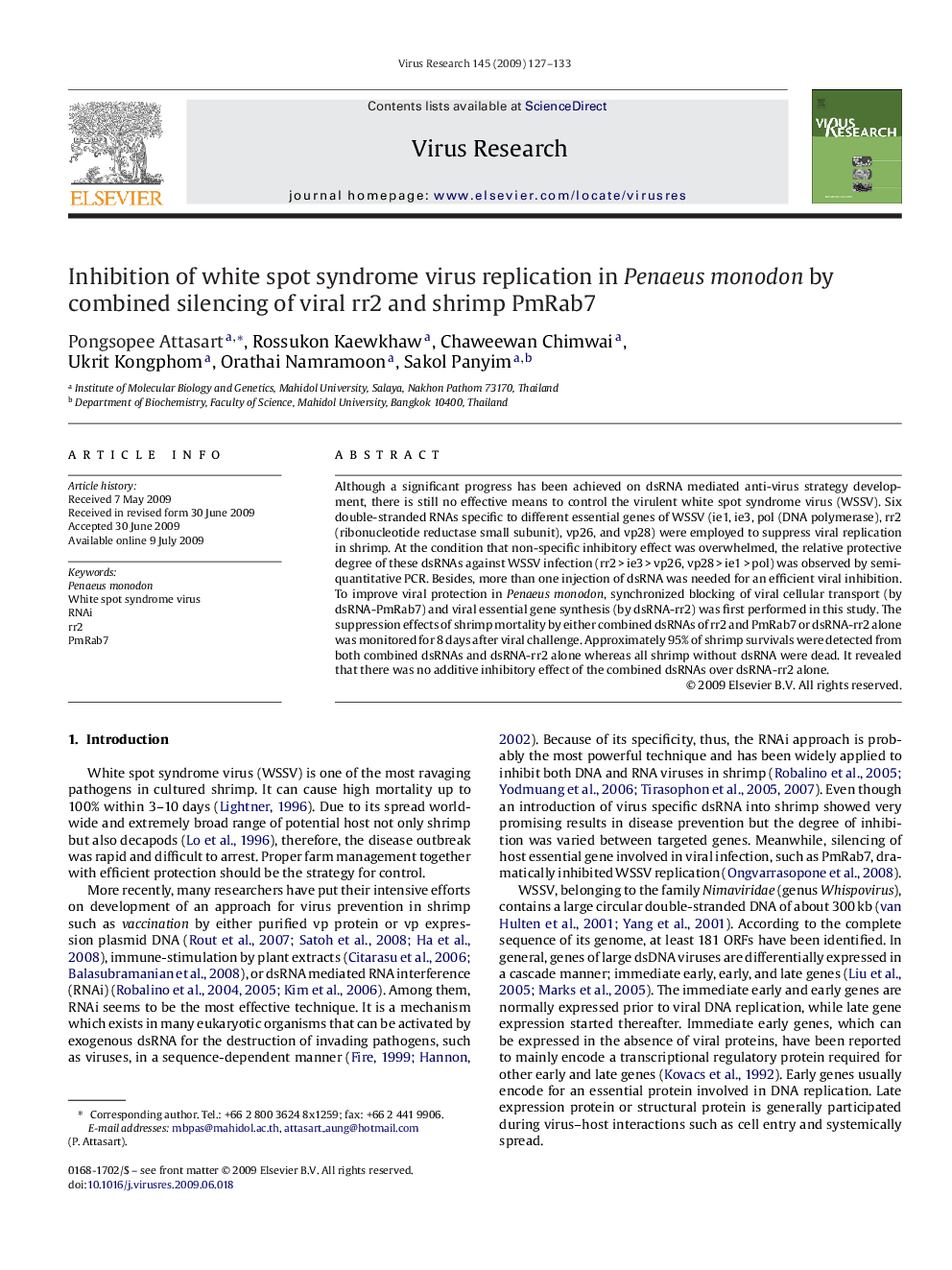| Article ID | Journal | Published Year | Pages | File Type |
|---|---|---|---|---|
| 3429763 | Virus Research | 2009 | 7 Pages |
Although a significant progress has been achieved on dsRNA mediated anti-virus strategy development, there is still no effective means to control the virulent white spot syndrome virus (WSSV). Six double-stranded RNAs specific to different essential genes of WSSV (ie1, ie3, pol (DNA polymerase), rr2 (ribonucleotide reductase small subunit), vp26, and vp28) were employed to suppress viral replication in shrimp. At the condition that non-specific inhibitory effect was overwhelmed, the relative protective degree of these dsRNAs against WSSV infection (rr2 > ie3 > vp26, vp28 > ie1 > pol) was observed by semi-quantitative PCR. Besides, more than one injection of dsRNA was needed for an efficient viral inhibition. To improve viral protection in Penaeus monodon, synchronized blocking of viral cellular transport (by dsRNA-PmRab7) and viral essential gene synthesis (by dsRNA-rr2) was first performed in this study. The suppression effects of shrimp mortality by either combined dsRNAs of rr2 and PmRab7 or dsRNA-rr2 alone was monitored for 8 days after viral challenge. Approximately 95% of shrimp survivals were detected from both combined dsRNAs and dsRNA-rr2 alone whereas all shrimp without dsRNA were dead. It revealed that there was no additive inhibitory effect of the combined dsRNAs over dsRNA-rr2 alone.
